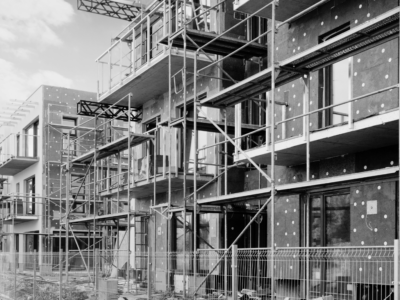2020 has been an unprecedented year in more ways than one and this certainly rings true for the property market.
The UK was already witnessing a steady progression of tenants and homebuyers migrating from the capital to areas further afield along the commuter belt or to alternative regional cities.
Post-pandemic however we’ve seen this power up to a sort of mass migration from London to suburbia amongst Londoners realising they need more space inside their homes and more outdoor, green space – with less need to be close to their workplace.
We’ve also seen people spending far less time in city centres than they would in a ‘normal’ year.
In a recent Webinar hosted by SevenCapital, the question was asked, will the new workplace ‘normal’ have an impact on city centre living in the future? And will people permanently ditch their city centre homes, close to the office, in favour of a life in more rural surrounds?
Our panellists, including financial adviser Laura Thursfield from Mazars, Sebastian Golding – a research analyst from Savills, and Raj Bedi from Martin & Co in Birmingham, all agreed that as a long-term effect, this would be unlikely.
Why? Firstly, our panellists pointed out that the majority of people don’t live in a city centre purely because it’s close to their workplace. They live there for the city lifestyle – the nightlife, the retail experience, the dining and much more.
Of course, when you take all this away, your immediate space and the outdoor, green spaces around you become far more important, so it’s natural that many people over lockdown and the summer chose to spend time in more rural areas.
However, when the virus is under control and life and business starts to go back to normal – whenever that may be, we will see a return of all these things we’ve missed over the past year. Many of those who enjoyed the city lifestyle before will want to return to it.
There will be some for whom the new rural lifestyle will be more suited, however the more significant effect we’re likely to see is on property choices, particularly among renters.
The desire for space is less likely to diminish, so we’ll see more people specifying a balcony for their new home. Likewise, properties closest to parks and outdoor space will benefit from higher demand.
On this point is where we come to look at London versus regional cities.
Due to the regeneration and development that many regional key cities are continuing to receive it’s arguable that due to affordability and a better focus on green spaces in modern construction, these cities offer a better standard of living than London.
It makes sense then that the trend for Londoners moving north, to the regional city alternatives, will continue – perhaps at a faster pace than before lockdown.
Finally, it needs to be said that if you’re getting into property investment, it should be for the long term, not the short term.
If you plan to invest over 20 years, then as long as you get the location right and keep the property in good condition then any stall or mini boom in the market should pale in comparison.























Comments